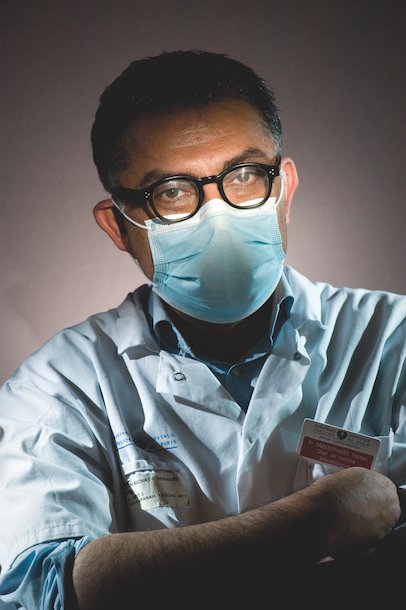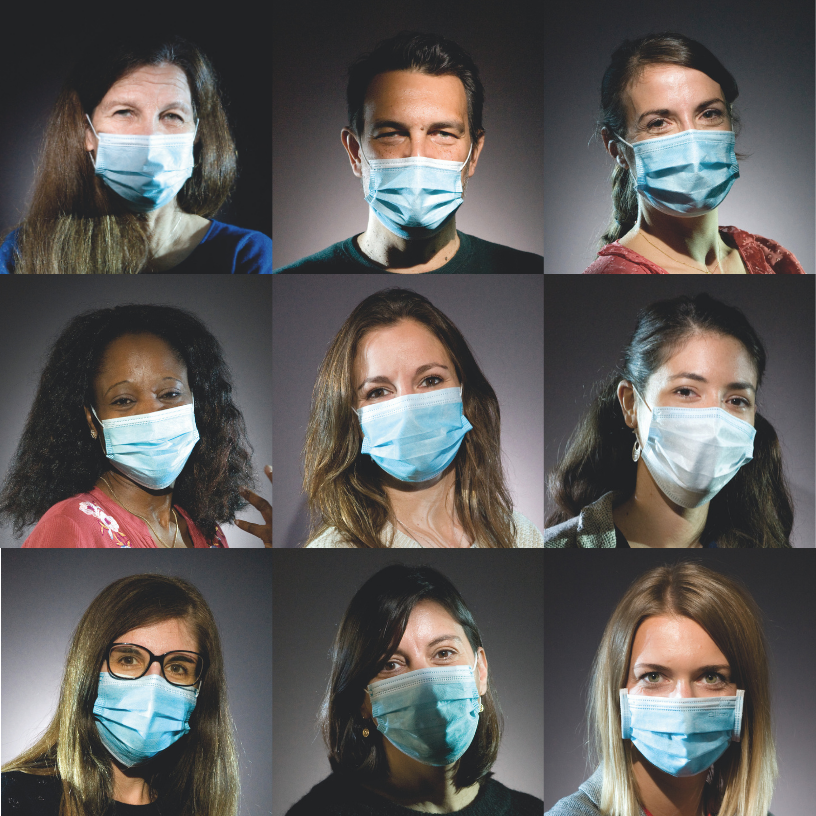Yazdan Yazdanpanah, 2020 OPECST-Inserm Prize
From the very start of the health crisis, the REACTing consortium team has been at the front line, coordinating studies on COVID-19. That is why it has been selected to receive the OPECST-Inserm Prize for social impact through its director, Yazdan Yazdanpanah, specialist of infectious diseases and director of the Inserm Immunology, Inflammation, Infectious Diseases and Microbiology Theme-Based Institute.

Ebola, Zika, HIV, hepatitis C, H1N1 influenza, previous coronaviruses and now COVID-19…: Yazdan Yazdanpanah* has been monitoring emerging viruses for twenty years. Yet nothing predestined this amateur footballer to become one of France’s most reputed infectious disease specialists and a key player in fighting COVID-19. Born in Iran 55 years ago and living in France since the age of 13, as a high schooler he preferred French literature to biology. And after having opted to study medicine in spite of this, his initial focus was psychiatry. The turning point came with his military service in Senegal in 1993, where he was confronted with schistosomiasis, an endemic parasitic infection caused by worms for which the Institut Pasteur in Lille was trying to develop a vaccine. « People got infected by bathing in infested water, recalls the doctor, which is hard not to do when it’s very hot... It was then I realized just how much infectious diseases are a daily affair, a matter for society, and how much they can affect everyone. »
It all began with the 2009 H1N1 pandemic
Back in France, he joined the Infectious Diseases Department of Lille University Hospital, marking the start of a brilliant career as infectious disease specialist and researcher. In 2011 this led him to Inserm, where he appreciated « the strong interaction with the universities and hospitals » as director of the ATIP-Avenir Decision Support and Cost-Effectiveness in Infectious Diseases team within Inserm unit 995 at Université Lille-Nord-de-France. The same year, he also became head of the Infectious Diseases Department at Bichat Hospital in Paris. Finally, in 2017, he was appointed director of the REACTing (REsearch and ACTion targeting emerging infectious diseases) consortium.
Created by Inserm under the aegis of the French National Alliance for Life Sciences and Health, this consortium was founded after the H1N1 influenza pandemic of 2009: « A crisis that revealed the limits of the research system back then – too slow to react to rapidly control the threat in an epidemic », explains the specialist.
REACTing federates teams and laboratories from different fields but with one shared objective: to prepare and coordinate research in order to accelerate it in the event of health crises linked to emerging infectious diseases, thereby helping to bring them under rapid control. The consortium is driven by Yazdanpanah « as well as one scientific director, two scientific advisers, five scientific officers and two administrative agents », he emphasizes. Working at Inserm head office in Paris, the team nominates and coordinates groups of experts able to identify priority research activities; it works on accelerating the attainment of funding and authorizations to launch new studies; and it tracks the progress of these projects.

Claire Madelaine, Fatoumata Coulibaly, Erica Telford, Guia Carrara, Jennifer Soulier, Inmaculada Ortega-Perez and Oriane Puéchal. Not pictured: Juliette Saillard and Zélie Godin. © Inserm/ François Guénet
Not perfect but efficient
« Aware of the importance of their missions in fighting COVID, my colleagues at REACTing, working long days and often weekends, have done an exceptional job », comments Yazdanpanah. The outcome being that in February, following a call for applications from French research teams, the REACTing scientific advisory board was in a position to select no fewer than 20 COVID research projects.
« We haven’t always been perfect, that’s certain… », he acknowledges, alluding to the complications surrounding the launch of Discovery. Intended to find effective treatments for COVID-19, this European-scale clinical trial only incorporated other countries four months after its launch, owing to a lack of authorizations and funding. « However, adds Yazdanpanah, on the whole, we’ve succeeded in rendering research more fluid in a crisis scenario. » An eternal optimist, the specialist remains convinced of one thing: « That in the medium term, research will certainly find solutions for COVID-19. »
Note:
*I3M Theme-Based Institute; Unit 1137 Inserm/Université de Paris/Université Sorbonne Paris Nord, Infection, Antimicrobials, Modeling, Evolution (IAME), Paris
